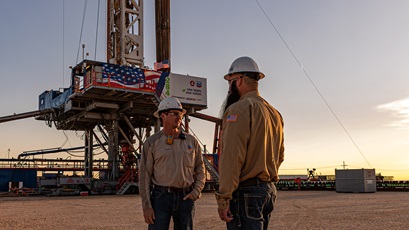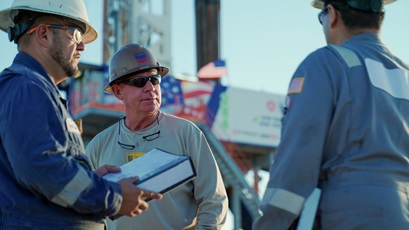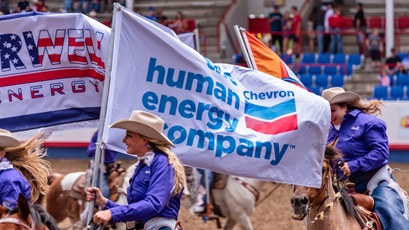people and community
artificial intelligence: the right tool at the right time
3 min read | december 09, 2022
More efficient technologies allow Shane Prochnow to spend more time working at his home in Fredericksburg, Texas, rather than in the field.
Shane Prochnow’s job changed a lot with Chevron’s adoption of artificial intelligence (AI) and machine learning tools. Prochnow is a digital geoscience advisor at Chevron’s Subsurface Innovation Lab. Like many at Chevron, he’s been at the forefront of leveraging existing data and rapidly advancing AI and machine learning technologies to unlock useful insights.
These tools help develop more representative models of the impact of different and changing rocks in a hydrocarbon reservoir.
One of Prochnow’s first assignments while working on a reservoir management team was to understand how unconventional reservoirs work.
“It involved looking at one point in the basin and throwing all the science we could possibly throw at it, including expensive well logging, microseismic surveys, radioactive tracers and more,” he said. “This is a very inefficient way of learning.”
gaining efficiency
Historically, to gain insights in the subsurface, operators drill many exploration wells to gather data.
AI and machine learning help geoscientists get a more accurate picture of what lies underground to efficiently inform decisions. The insights help continuously optimize how we recover hydrocarbons, minimizing the need to drill exploration wells and ultimately helping to reduce our environmental footprint.
For more than a century, scientists and engineers charged with our conventional hydrocarbon assets relied on conventional methods for extracting oil and gas. But the discovery of unconventional development—the process of producing from shale and similarly “tight” rocks—is completely different and brings new challenges which require new ways of thinking.
“With unconventionals, we are dealing with something radically different,” Prochnow said. “The rules, or pay elements, that dictate how we determine if we have a producible reservoir went completely out the window. They don’t apply to unconventional reservoirs.”
shane prochnow
digital geoscience advisor, chevron subsurface innovation lab
making an impact
Prochnow used to spend his days as a senior practitioner loading individual logs and analyzing them for a small development area. Now he can accomplish even more because of AI workflows.
“I have much more data at my fingertips which I quickly grab so I can make decisions that are much more informed and much more impactful,” he said.
The work is only getting more interesting. We are also advancing how we use AI to improve the way we capture and permanently store carbon deep underground—an important factor in supporting greenhouse gas ambitions of the Paris Agreement. Chevron is harnessing the benefits of AI and analytics across its global operations.
“As you demonstrate that AI and machine learning are useful to work complex problems, you end up just working even more complex problems,” Prochnow said.
topics covered
related content
-

 supporting STEM education in new mexico
supporting STEM education in new mexicopeople and communitynovember 18, 2025
-

 frontline innovations drive business solutions
frontline innovations drive business solutionspeople and communitynovember 12, 2025
-

 the people who power the US energy advantage
the people who power the US energy advantageour operationsnovember 06, 2025
-

 greeley stampede is riding high, with chevron’s support
greeley stampede is riding high, with chevron’s supportpeople and communityaugust 18, 2025
chevron email updates
Subscribe to our newsletter to receive news and updates.



